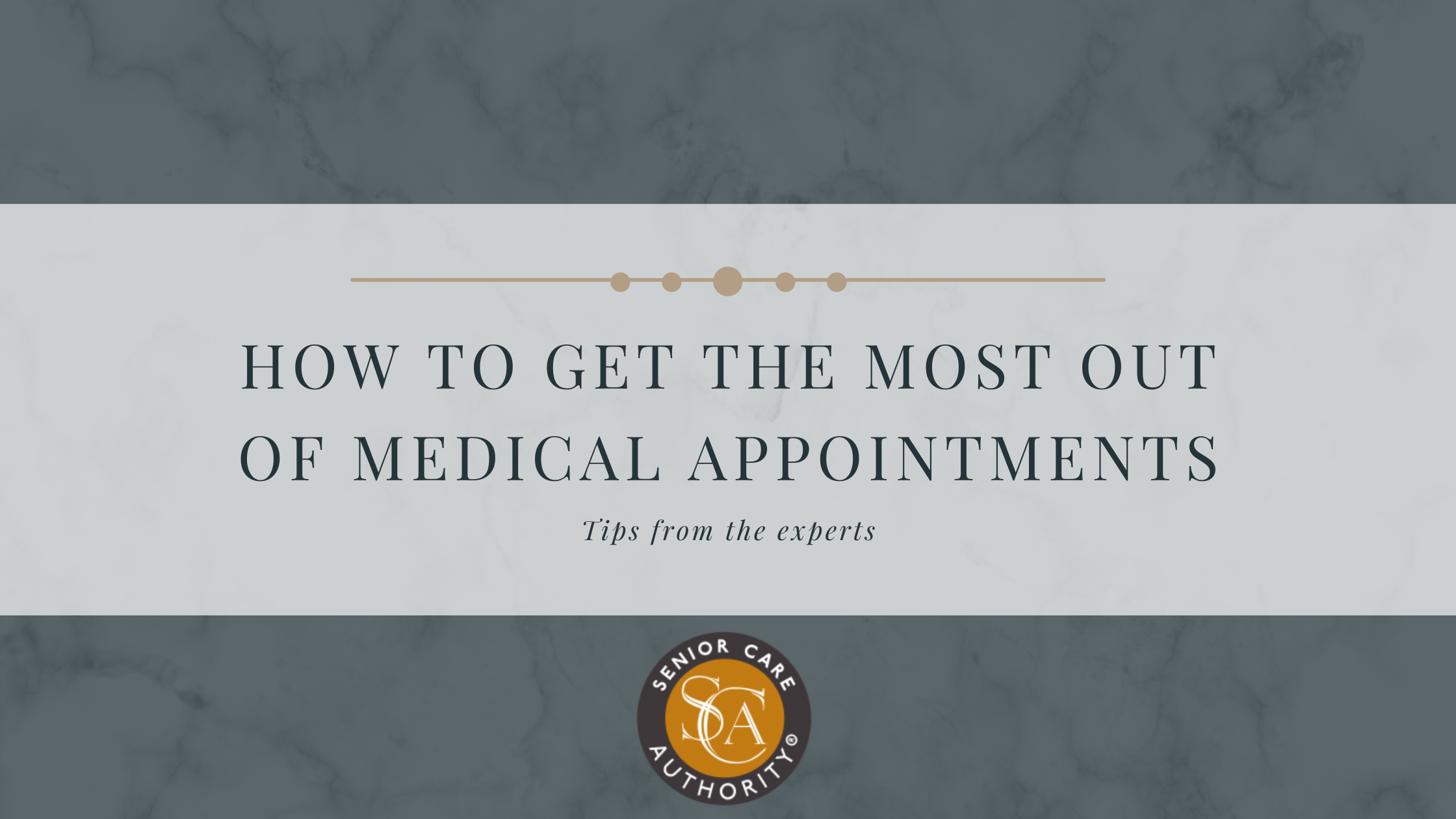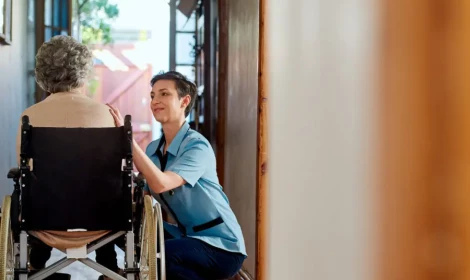How To Get The Most Out of Medical Appointments- Tips from the experts
If you are acting as a caregiver for an elder loved one, maximizing the productivity of their medical appointments makes a lot of sense. Not doing so is a waste of time

Have you ever left a doctor’s appointment feeling like you did not discuss everything that you wanted to? Most of us have been here at one point. It may be that the appointment felt rushed, that you were stressed out or not feeling well, or you simply forgot what you wanted to ask. Older adults in particular can become nervous when visiting their doctor’s office. Most of us are not at our best when we are not feeling well, and communicating the necessary information can be difficult. If you are a caregiver for an elder loved one, it is especially imperative that visits to the doctor be productive. With some preparation beforehand, medical appointments can become a lot more beneficial and productive. Here are some tips to help you:
1. Before the appointment
- Write down all of the questions and concerns, you and your loved one have that should be discussed with the doctor
- Include specific details about symptoms, as well as any noticeable changes, even if they seem minor
- Make a list of all medications, vitamins, supplements, and over-the-counter medications your loved one is currently taking (or bring ALL bottles and containers with you)
2. During the appointment
- Ask questions and take detailed notes. Most smartphones have a recording function that you can utilize to record the appointment, if you think that would be useful.
- If you do not understand something the doctor is telling you, speak up and ask for clarification. Ask the provider to explain in a different way, use more understandable language, or just repeat something you do not fully understand
- If new medication is being prescribed , ask what the reason is, what the possible side effects might be, and what the dosage and frequency is
- Ask what a reasonable timeframe is to expect to see a change in symptoms when taking a new medication. If you do not feel like the new medication is doing what it is supposed to by that time, it might be a good idea to schedule a follow up appointment. Sometimes adjusting the dosage in necessary to achieve the desired result
- Confirm that there are no known interactions between the new medication and current medications
- Ask about the risks in not taking the new medication the doctor is prescribing
- Make sure all the questions on your list have been answered. Give your loved one an opportunity to ask other questions they may have come up with, and ensure everyone has a clear understanding of the answers and the next steps, if there are any
- If there are steps that need taken later, make sure
3. Before you leave
- Confirm the best communication method for the doctor for any follow up questions or concerns that arise (e.g. phone hours, email, text). Do not wait until the next appointment!
- Remember that it is your right to have your questions answered. Sometimes waiting to ask questions until next time can have a negative effect on your loved one’s health
4. When you need a little extra help
As a caregiver, you may find it difficult at times to attend every medical appointment. You may also feel overwhelmed or worry that you might forget something important the doctor mentions. There are professionals, known as Senior Advisors, Care Managers, or Healthcare Navigators, who can act as an advocate at your loved one’s medical appointments on your behalf.
If the person you are caring for is not in the same area as you, this can be a solution to ensure that they are getting the attention and assistance needed at their medical appointments. This person will provide you with a detailed report after the appointment, so that you are not missing any important information.
________________________________________________________________________________________________________
Senior Care Authority of New York and Southwest Florida are professional Senior Advisors who provide this, as well as other, senior services. Having a Senior Advisor that you can call upon for assistance when you need it is like having a safety net. Being a caregiver for a loved one, regardless of how much you care for and love them, can become overwhelming and stressful, especially when you are also caring for your own family.
Luckily, there are professionals, like Senior Care Authority, who are ready and able to help 24/7, offering guidance and support. We have made caring for Seniors our life and can provide insights and information that will help you and your loved one, even when it seems like no one else could possibly understand. Contact us today and set up your appointment for a free consultation with one of our experts. We will answer your questions and help you with the next steps. There is help for you and it is only a phone call away!





